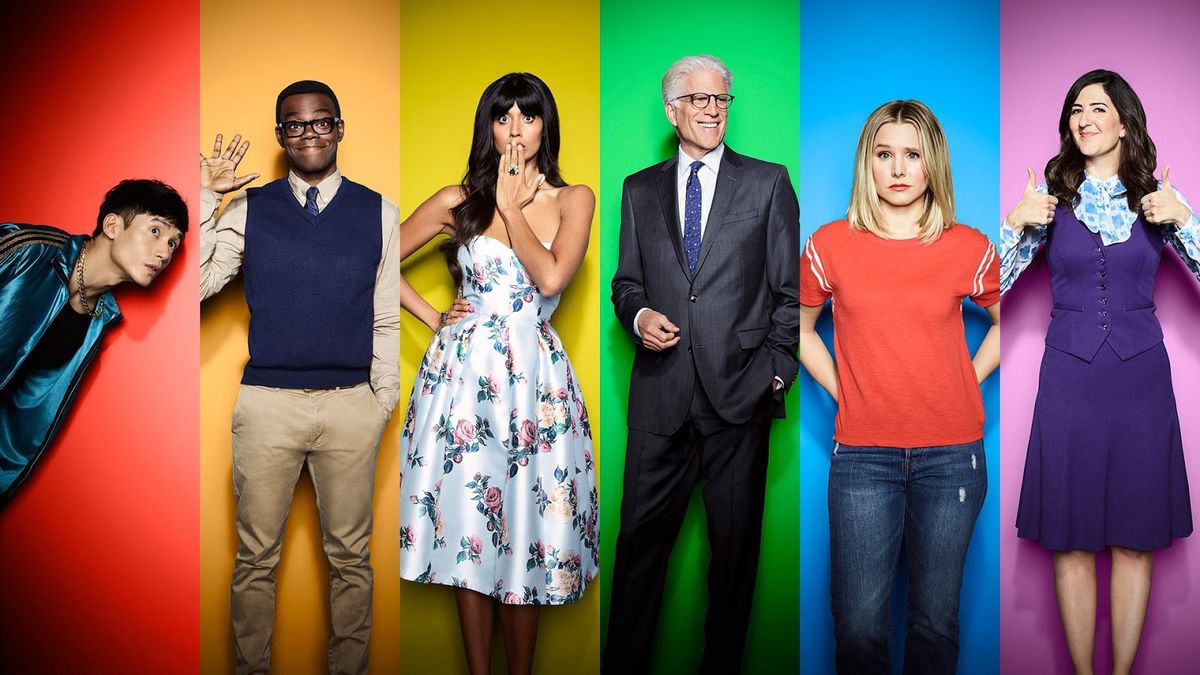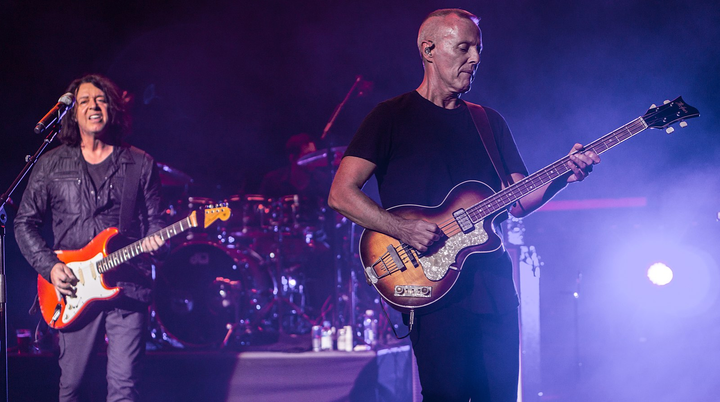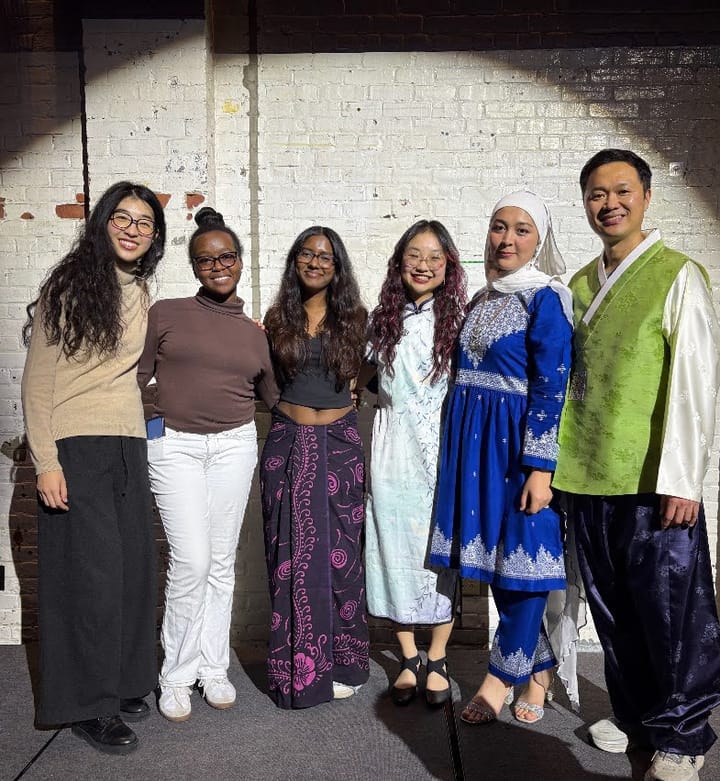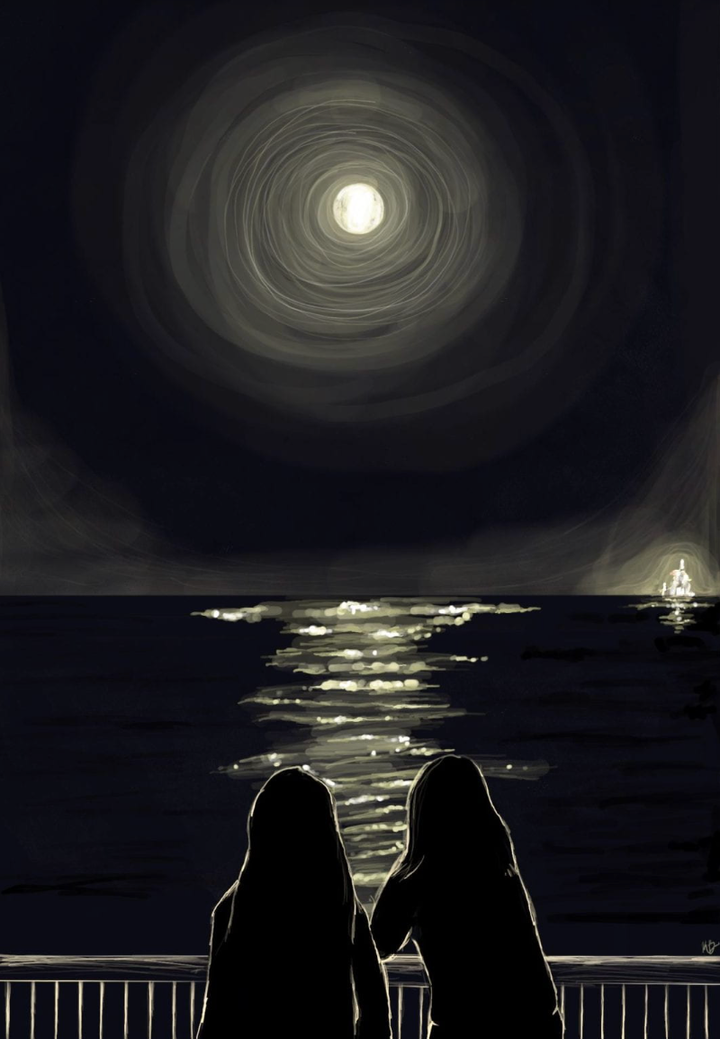“The Good Place” Presents Thoughtful, Warm Finale

Note: This review contains spoilers of “The Good Place’s” finale.
Few shows attempt to challenge their viewers while making them laugh, and even fewer shows do it as well as “The Good Place,” which aired its series finale Jan. 30. The NBC comedy, which explored the ethical and comedic implications of a modern afterlife, ran for four seasons packed with laughs and genuinely unexpected twists. While “The Good Place” begins with Eleanor (Kristen Bell), a washed-up, day drinking, Arizona native, ‘‘accidentally’ making it to the utopian “Good Place” after her death, the show quickly expands to a dysfunctional group of misplaced humans similar to Eleanor and their quest to not only escape eternal damnation but to fix the critically broken afterlife system.
The show spans across genres: first and foremost, a comedy but also a drama and a moral rumination about what happens after the end. While the show struggles in some of its slower sections, the series finale finishes strong, offering a sentimental and meaningful conclusion for its central characters as well as for its fans.
Rather than wrapping up loose plot ends, the 90-minute special, “Whenever You’re Ready” provided a retrospective send-off to its main characters. Previous episodes and seasons leaned heavily on its comedic moments. While each character is consistently fall-out-of-your-seat funny, Jason (Manny Jacinto), a dedicated Jacksonville Jaguars fan who died after accidentally locking himself in a safe, and Janet (D’Arcy Carden), the afterlife’s Amazon Alexa who breaks free from her programming, have been comedic standouts in the show.
But the finale pulls back on the gag-filled moments, instead returning to the nuanced thinking of its earlier seasons. Throughout its run, “The Good Place” highlighted the complex philosophical troubles that a judgement-based afterlife presents, without a single mention of heaven and hell or God and the devil. Especially at the beginning of the series, it works to undermine the immediate, underlying connection to Christianity. There are all-knowing and all-powerful beings, but they don’t seem to be all that knowing or powerful.
If anything, the show propels itself by the incompetence of those beings, as well as by their gradual humanization. They aren’t gods, but people. And, in all honesty, hell in “The Good Place” — or should we say “the bad place” — doesn’t seem that scary, and heaven doesn’t seem that good. Yet in highlighting a dichotomy between the afterlife’s Angels and Demons, as well as themes about the misperception of immorality, “The Good Place” certainly addresses Christianity — not as a system of belief and practice but as a code of “right” and “wrong.” When the central characters uncover the inequality in the afterlife’s “point system,” it feels like a critique of the harsh, impermeable belief system of the modern American.
But this is not exactly the type of existentialism that the finale explores. Instead of structural and universal debates, the finale hones in on the individual. After spending eternity with all of one’s needs and deepest desires fulfilled, what then? It’s a startling question. Over the course of the finale, spread out over a seemingly-incalculable amount of time, the show’s central characters grapple with the reality that they now have everything they wanted, and the prospective choice to fully end their conscious existence by walking through an idyllic, redwood tree door.
The show’s final season struggled to pose challenging questions like this after the protagonists had reworked and won over the obstacles of the afterlife, and it lost steam, so it was nice to see a return to the existentialism that made the early seasons of “The Good Place” so multifaceted.
The finale’s premise of an eternal bliss in heaven highlights the show’s previous work in forcing its characters to address their fatal (literally) flaws. The celebrity name-dropping socialite Tahani (Jameela Jamil) decides to train to be an “architect” and improve the afterlife’s system, after a life of pretend benevolence. The moral philosophy professor Chidi (William Jackson Harper) might have made the most drastic shift: he overcomes his life-long indecision and chooses to meet a blissfully uncertain end. The heart of the finale and the show as a whole lies with Eleanor. While the other characters come to their endings naturally, she struggles in the finale with wanting to speed up the process. In the end, she quietly finds inner peace. A life of attention-seeking directly contrasts with her ending; she’s the only one out of the characters whose final decision does not receive explanation. It feels wholly fitting.
Like the show’s earlier moments, the finale is steeped in an unfading, unsmirched optimism. While it is largely fitting (it’s the finale, after all), the finale presents more questions than it answers. The hollow door that provides a final end to the afterlife is the main point of focus of the episode, hanging over every interaction as each character eventually decides to end their days in heaven (or not). While most of the characters decide to walk through after eons of consideration with open arms, I still found it unsettling — not because I disagree with their choice, but because it is completely incomprehensible to me: I’m a college student just starting out in life, relatively. I’m not exactly itching to think about my inevitable end. Existential fear does not become itself to a heart-warming finale, so it’s understandable that the show shied away from this.
While “The Good Place” does not fully offer a conclusion to its final, spiritual question about life’s end — how could it, really? — I found myself content to return to thinking about the end of a great show. Relaxed and relishing in its relaxation, “The Good Place” ends with a contented sigh rather than a bang, leaving me sated but also, eager to binge-watch the entire show over again.





Comments ()